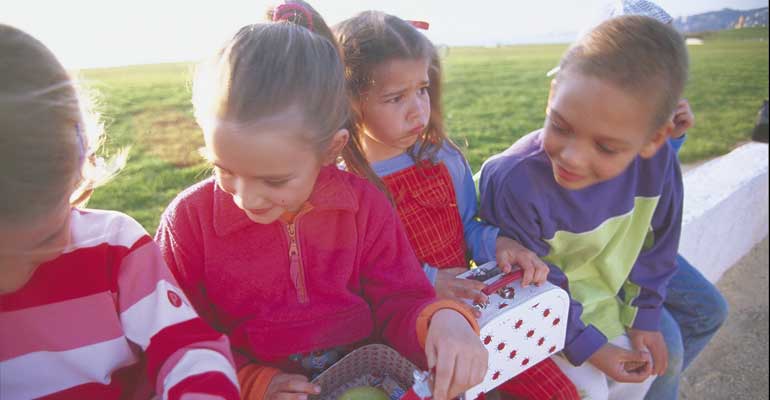Preschoolers often reflect their parents’ excitement about adoption: they love to hear and share their stories, and celebrate their heritage. By age six to eight though, this may change.
As children start to understand adoption as a more complex issue, they also are exposed to societal attitudes that say adoption is a second-class status. Such messages may cause children to stop talking about adoption.
Parents often interpret this silence as evidence that their child has processed all that is necessary. More likely, though, the child has taken his thoughts and feelings underground. How can you help keep the conversation flowing and promote his psychological health?
Here’s How:
Try to learn and practice the language of feelings. “Gee, Sally, I feel bad when somebody tells me they don’t like my hair. Does that happen to you?” Expressing both pleasant and unpleasant feelings offers how-to lessons and gives your child permission to do the same.
Find an adoption workshop. This way your child can explore what it means to grow up adopted in a setting where her thoughts, feelings, and questions are reflected in the words of others who share them. Many older adoptees say such opportunities helped them feel less isolated. Talking with others encourages kids to talk more openly with their parents.
Help your child connect to an adult adoptee role model. He can reassure a child that he is normal and won’t be overpowered by adoption- and race-related feelings that periodically occur.
Stay involved in adoptive family support groups. Even if your child resists participating, which is common at this stage, it’s important. Read this resistance as a possible indicator that she is struggling and needs peer support. If your child backs away from his culture-of-origin or those who share his ethnicity, don’t ignore this. Find out why and demonstrate your interest in this aspect of your family’s expanded cultural connections.
Seek help now from an adoption therapist if these feelings continue or intensify, but do not think you have caused this. We live in an extremely race-conscious society, and our children easily pick up on racial prejudice and stereotyping, and react to it.
Offer your child age-appropriate literature. Reading books about children who are growing up in adoptive families or are of varied ethnicity helps a child understand that this is a widely shared journey and that she can triumph over hurtful situations by learning effective interpersonal skills. Ask your child what she thinks about the characters in the books and their strategies-children this age love to be the experts.
Find your balance as a family. While it is never healthy to step around adoption as though it is the proverbial elephant in the living room, children do need some space just to be kids! Remember that you are only a guide; it is your child’s lifework to process and integrate his or her adoption history.


